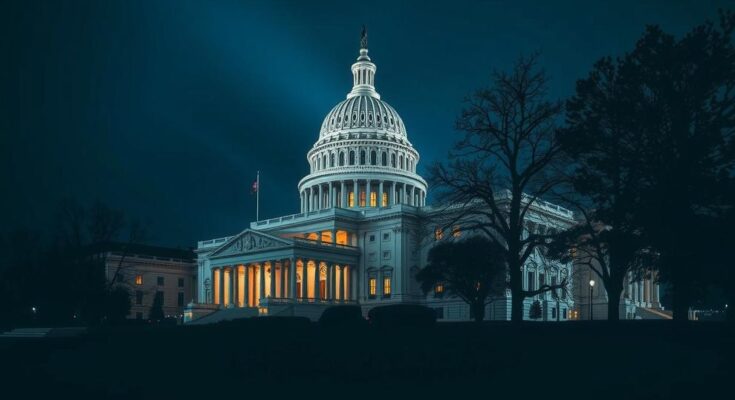Since the Democrats’ defeat in the 2024 election, President Joe Biden has remained largely silent, with minimal public reflection on the implications of the electoral vote and the future trajectory of the Democratic Party. His recent international travels, characterized by a lack of press engagement, suggest a significant shift in dynamics within American political leadership as both analysts and global leaders prepare for a new epoch following Trump’s victory.
Since the Democratic Party’s significant electoral losses during the 2024 election, President Joe Biden has adopted a notably restrained public demeanor. His sole remarks regarding the election occurred in a brief Rose Garden address shortly after the results, where he advocated for unity among Americans. During his recent six-day trip to South America, President Biden notably refrained from holding a press conference or addressing ongoing pressing issues, reinforcing the perception of his administration’s withdrawal from public discourse.
His silence is particularly striking in light of the profound implications anticipated from a second Trump presidency. Analysts, including former advisor David Axelrod, assert that this period of quiet signifies a transition of leadership dynamics, suggesting a necessity for Biden to be more vocal to shape his legacy as he approaches the conclusion of his presidency. Meanwhile, international actors appear ready to move forward regardless of Biden’s contemplative stance, as evidenced by engagement from global leaders like Xi Jinping.
The 2024 elections yielded significant losses for Democrats, with Donald Trump winning both the popular and Electoral College votes, alongside gaining Congressional control. This outcome has created an environment ripe for analysis regarding Biden’s responses and his future political significance. Historical precedents, such as that of former President Jimmy Carter, highlight the potential for political rehabilitation, raising questions about Biden’s delayed public insights as time progresses and societal dynamics evolve. Furthermore, Biden has traditionally emphasized the importance of orderly transitions and democratic processes, yet his lack of engagement during critical international discussions concerning conflicts like Ukraine poses implications for his diplomatic legacy.
In summary, President Biden’s post-election silence raises concerns about his capacity to influence ongoing political narratives and address pressing global concerns. Analysts suggest that embracing vocal engagement in this critical phase could illuminate his legacy and rationale for forthcoming leadership transitions. As America awaits Biden’s next steps, his reticence leaves both national and international observers pondering the future of U.S. political direction under a resurgent Trump administration.
Original Source: apnews.com




